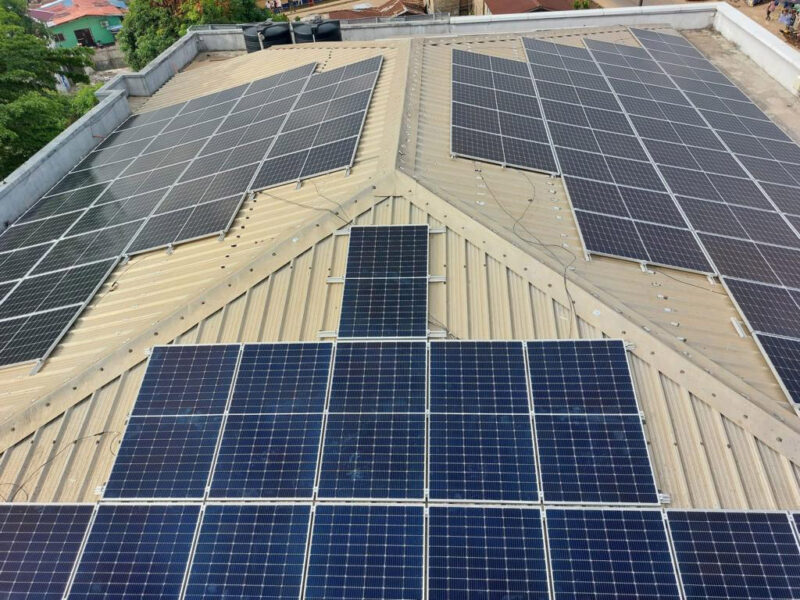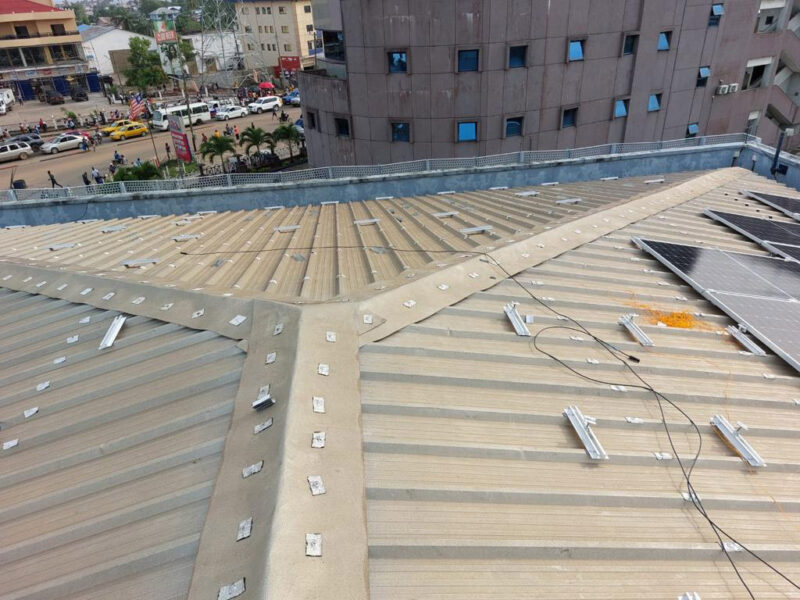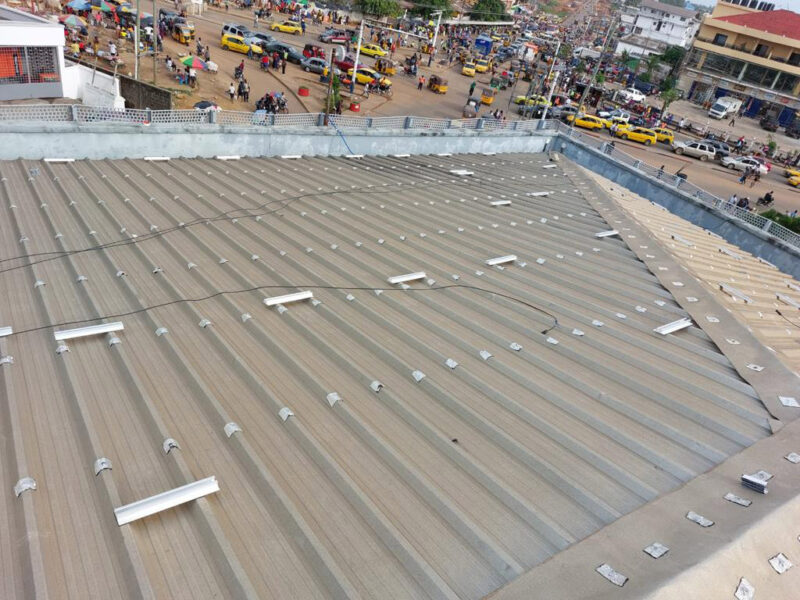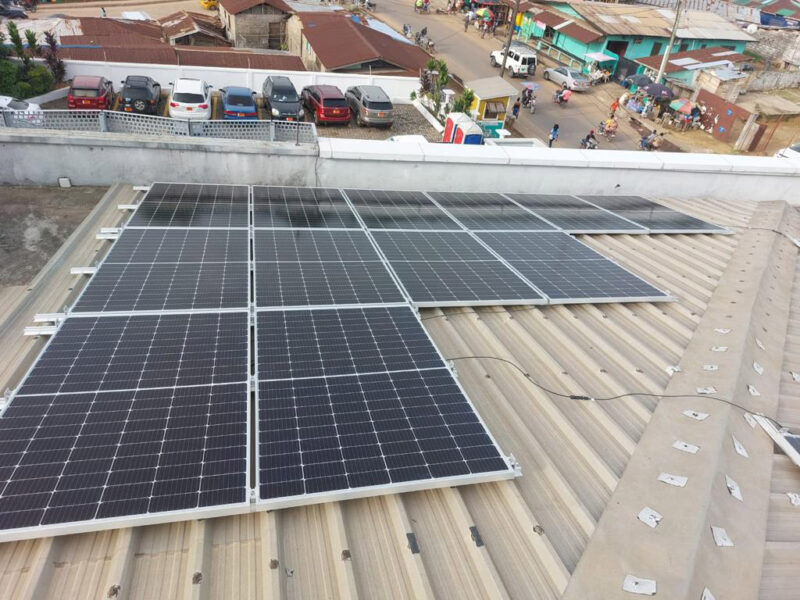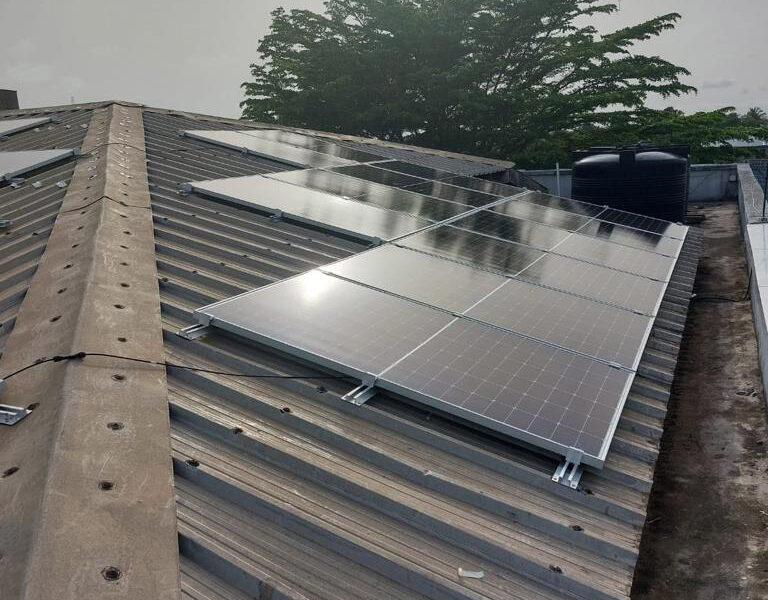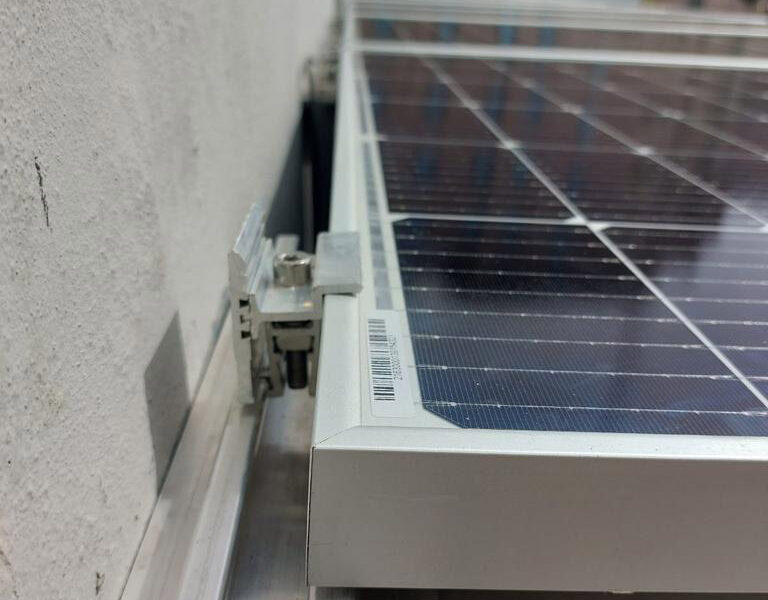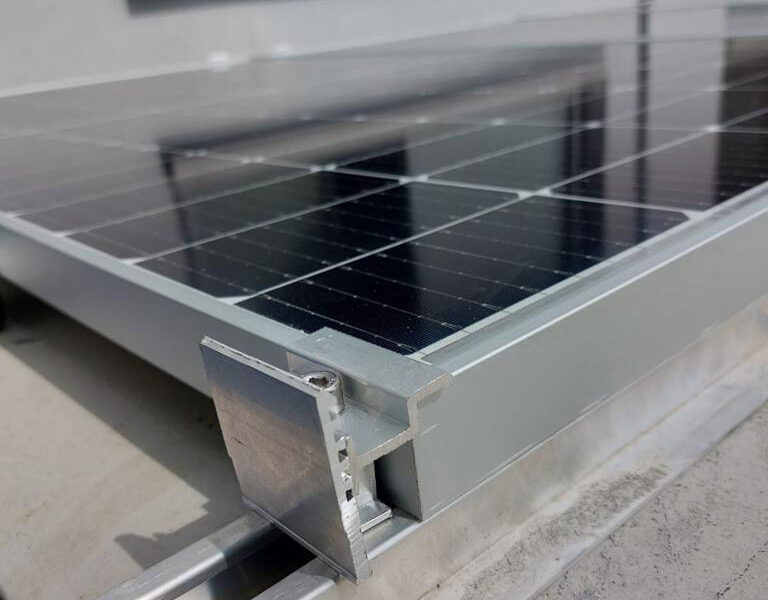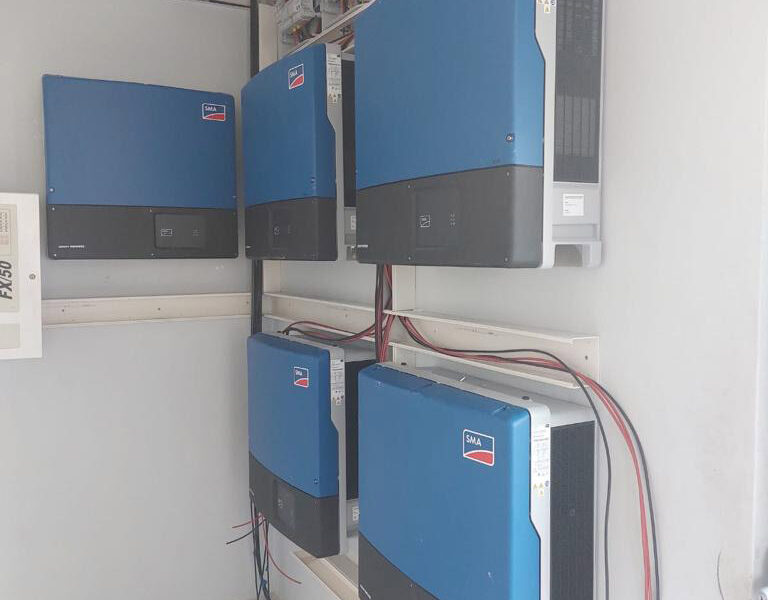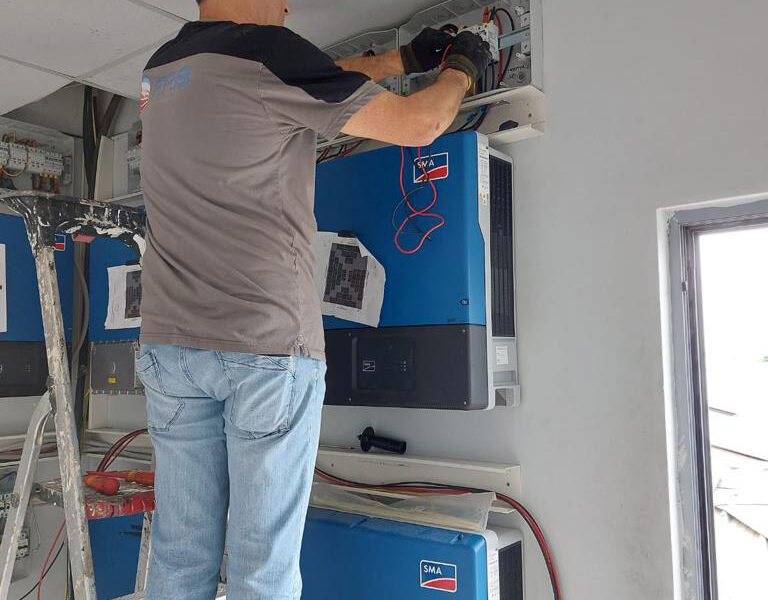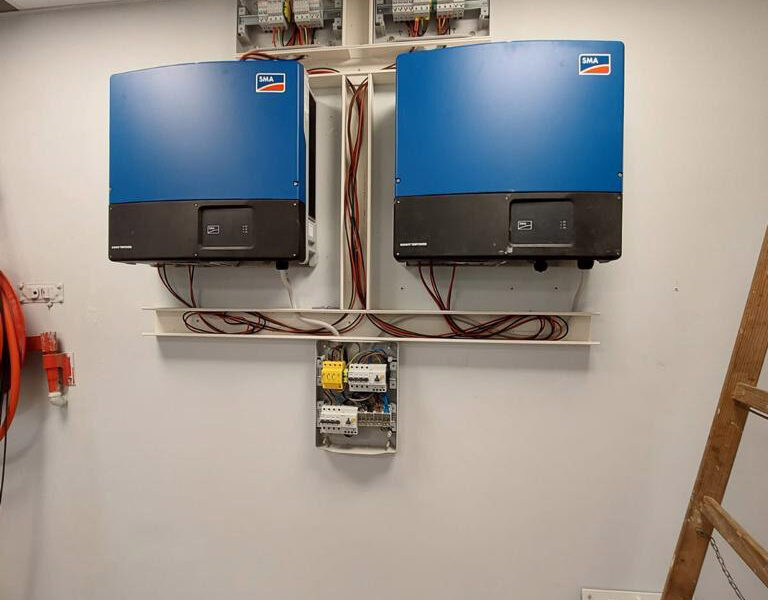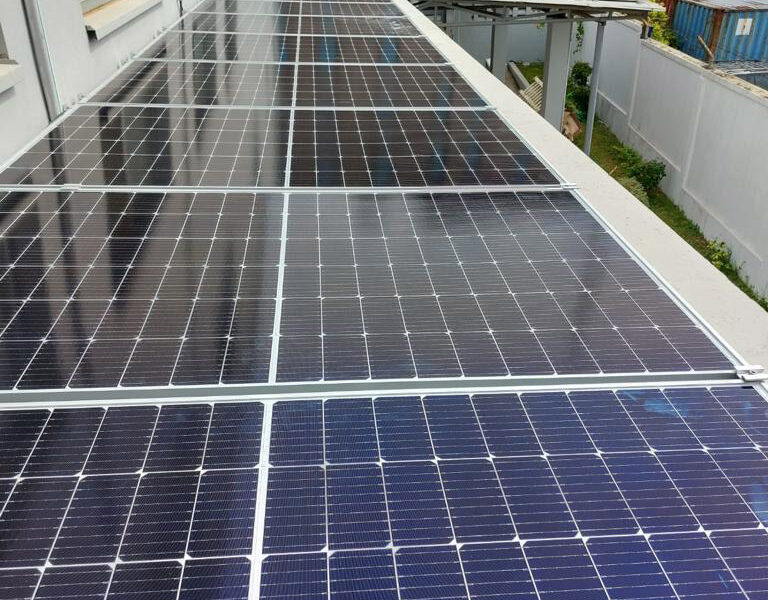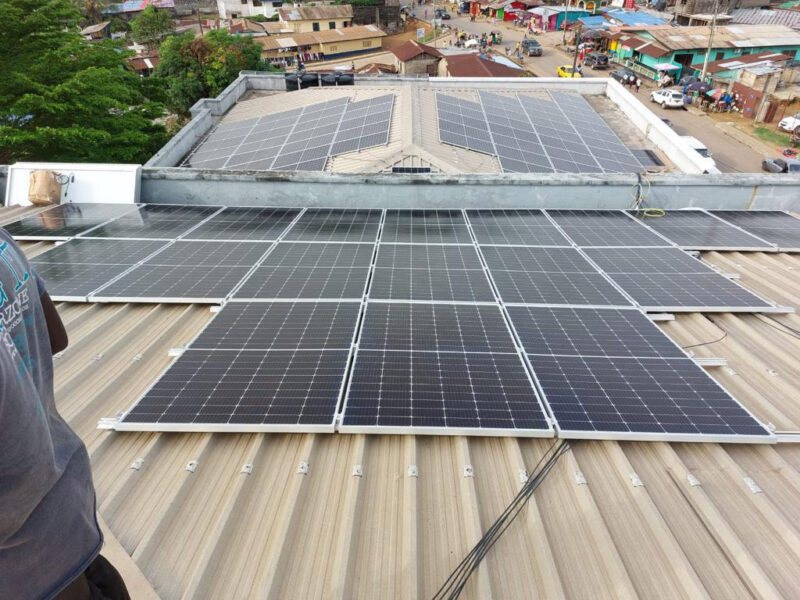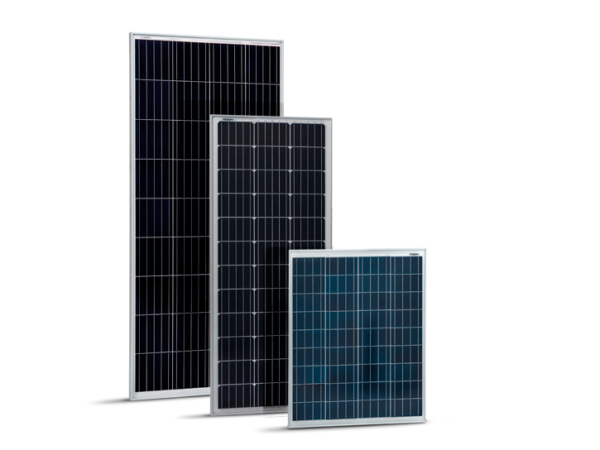The national power grid in Liberia is unreliable, subject to continuous and prolonged outages. Therefore, many public and private buildings offering essential services have been equipped with diesel generators to compensate for the grid holes. However, the cost of diesel is becoming unaffordable and therefore the services provided are also becoming more expensive for the population. All this ends up impacting the health of the population if the services are those provided by clinics and hospitals.
This situation also occurred at a hospital with an attached private clinic in a location on the outskirts of Monrovia, the capital. Our local partner, another Italian company that has been active for many years in Liberia, then was approached to find a solution to the energy cost problem, at which point OffgridSun was involved and analyzed the situation from a technical point of view.
Since most of the consumption is daytime and there was not enough budget to offer a storage system that would allow the generators to be turned off completely anyway, a solar-diesel hybrid system was chosen.
Using the sun’s energy significantly lowers the consumption of diesel fuel during the day and consequently the monthly cost for energy, so that the payback time of the initial investment is very quick. In fact, the photovoltaic system integrates with the power grid of the existing building without major changes from the plant engineering point of view.
For this particular implementation of solar hybrid system for hospital, 148.2 kW of PV was installed with Futurasun FU380SilkPro panels and 8 inverters 20 kW SMA Sunny Tripower 20000-TL, while two 500 kVA generators were already in place. The main challenge was the placement of the modules on the available rooftops. In fact, the facility consists of four buildings with four-pitch roofs, a canopy, and a pedestrian walkway more than 50 m long.
From summer 2022, the compound will operate by integrating solar electricity and fossil fuel energy with an estimated CO2 savings of about 120 tons/year.
Discover our products
Request more information
Write to us to receive more information
Request more information
Write to us to receive more information

"*" indicates required fields


